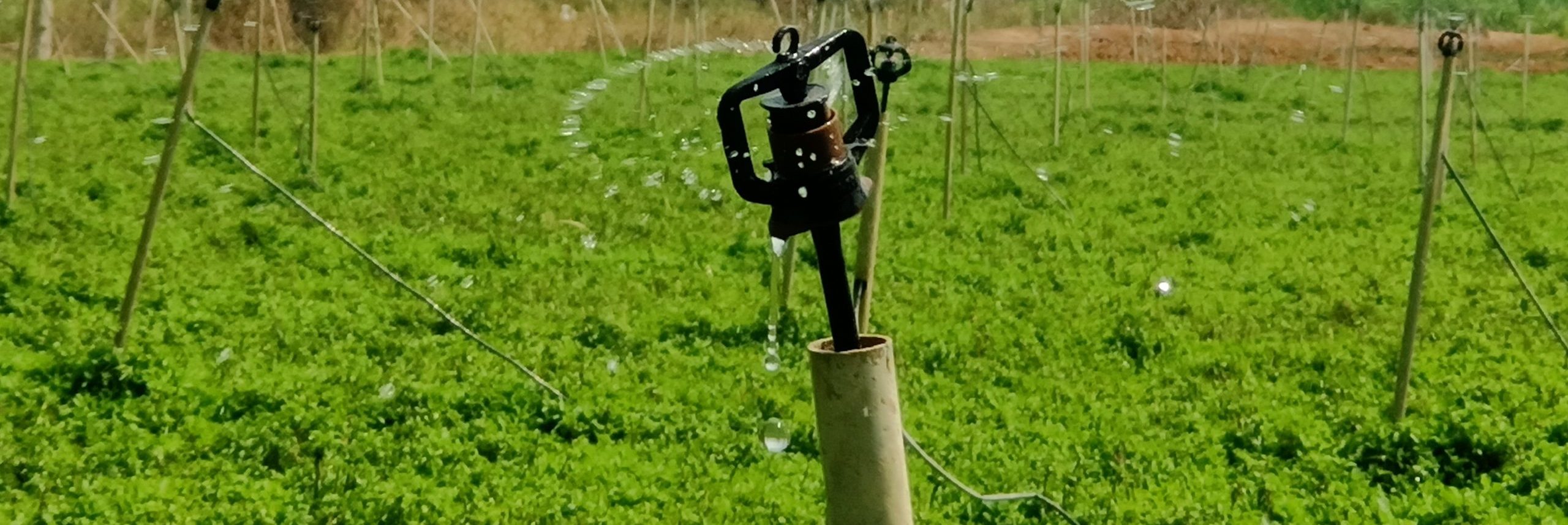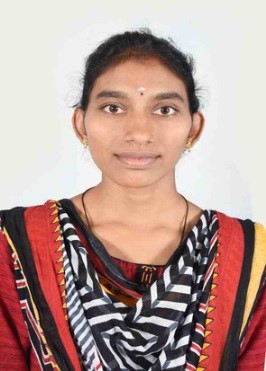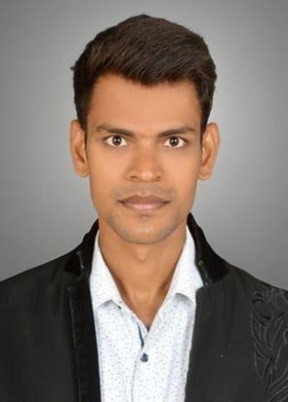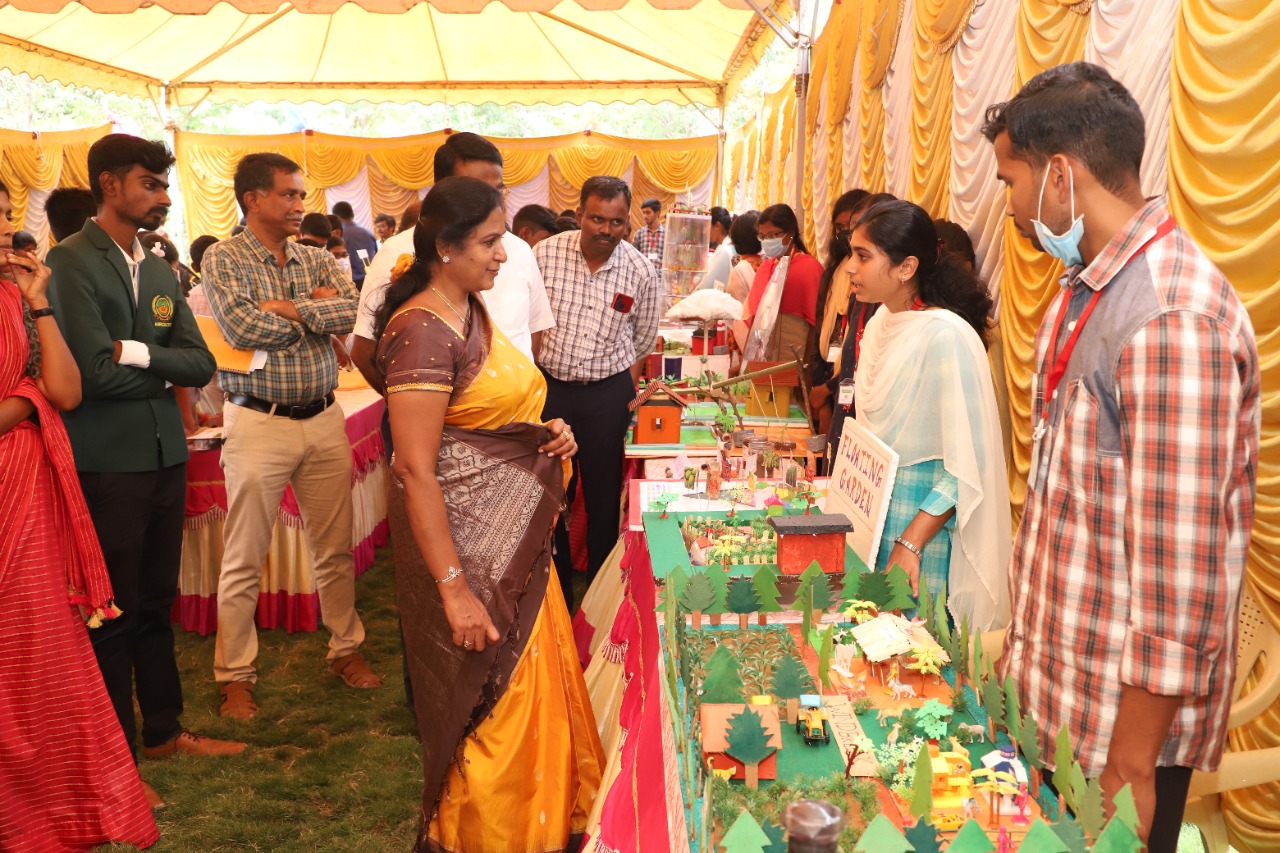The Tamil Nadu Agricultural University (TNAU) had its genesis from establishment of an Agricultural School at Saidapet, Madras, Tamil Nadu, as early as 1868 and it was later relocated at Coimbatore.
Get in touch
- info@tnau.ac.in
- 0422 6611200
- Monday to Friday: 9am to 5pm

M.Tech Soil and Water Conservation Engineering
Prelude
Soil and water are the vital natural resources essential to sustain life which are most neglected and over exploited. “Soil provides dignity to all life, so it deserves dignity”. This calls everyone to honour and respect the natural resources for the future prosperity and sustenance. The course is structured in an inter disciplinary approach and designed to impart knowledge to students in the latest innovative technologies in the field of Soil and Water Conservation, Micro Irrigation, Irrigation Water Management, Remote Sensing,Water harvesting and Watershed Management .
Why this programme?
- This program mainly provides basic to higher level information of Soil and Water related activities to serve the farming community. Promotes growth of knowledge in soil and water conservation engineering, contributing to the formulation of social policies and providing guidance for government related activities.
Study Programme
The course impart:
- This program deals with engineering principles involved in Soil and Water conservation, Groundwater, Watershed management , Hydro-logical modelling, Remote sensing and Geographical Information system .
Colleges offering
M.Tech (Soil and Water Conservation Engineering) is offered by the Department of Soil and Water conservation Engineering in Agricultural Engineering College and Research Institute, TNAU, Coimbatore as full time course.
Application and Admission
Interested in taking part in the program of Soil and Water Conservation Engineering? Find out more about the specific Admission requirements and the application procedures from our official website. If you doubt whether admission is possible, feel welcome to apply online. The Admission Committee will check your admissibility.
Future Career
Students get inspired during their research work to pursue their doctoral program. During their study program they prepare themselves for ICAR NET /UGC NET /GATE exam and they get cleared with good grade. They also get through ICAR JRF/SRF for entering any SAU’S with Scholarship or Stipend during their program. They also prepare for becoming ARS (Agricultural Research Scientists). Post Graduates are currently working in Agricultural and Agricultural Engineering Colleges as Teaching Faculty, Research Associates.They also work in irrigation companies and landscaping in India and abroad.
Master’s in Soil and Water Conservation Engineering
Master Courses
The students undergo a set of courses that help them understand the basics of Soil and Water Conservation Engineering as per the Choice Based Credit System (CBCS) .
Master’s research
After completing the courses of the first year, the students start thesis research from second year. Each student is assigned to an experienced faculty to guide the student on his/ her choice of research topic.
Student Experiences

Being an overseas student, I was much welcomed and pampered by all student friends and faculty. I am proud enough to be part of this institution. Courses delivered have great content relevance for my career elevation and for that reason it has inspired me to advance to Ph.D. The course content and the faculty are helping us to explore our potential as learners in Post Graduate studies.(Seremane Bridget Tshepiso, I M.Tech SWCE)

The course delivered a very good experience for me not only in academics and also helped me in gaining practical knowledge. Working with experienced course teachers is a great opportunity for us. We have a good practical experience like field visit, designing work for irrigation field. Here I have learnt usage of QGIS, CAD which increases my profile value. We even attend training Programs given in the campus and also outside the campus. (Pal. Nirosha , I M.Tech (SWCE))

My name is Raj Kumar Pal from Varanasi, Uttar Pradesh, India. Though I come from northern part of India, I feel homely in this college. Apart from soil and water conservation engineering subjects, I also got opportunity to learn about IOT, ML and AI here.(Raj Kumar Pal , I M.Tech (SWCE)

At first I was bit afraid to join master degree because of the heaviness of the subject and also due to another reason that there was a long time gap between my completion of under graduation and the joining time of M.Tech. After joining here, I am feeling much comfortable to study because of my friendly teachers who are always approachable and helping me in all stages of research work. (A.R.Revathi, I M.Tech (SWCE)

